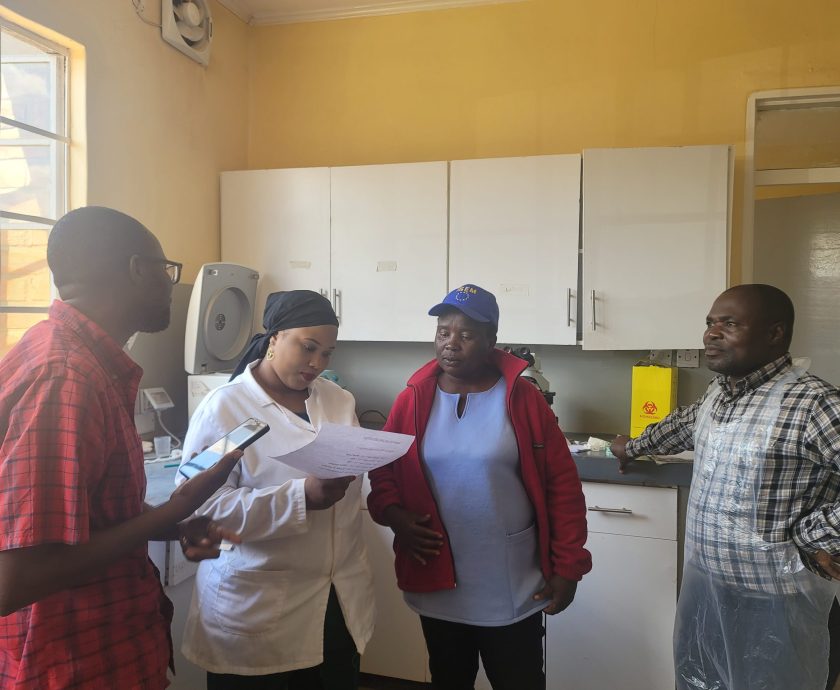Private clinics are saving time by not having to transport samples themselves, allowing them to focus on their core business of providing healthcare services. On 17th March, 2023 R4H introduced its optimized and scheduled sample transport systems to private clinic owners. The orientation was held at R4H Offices in Lilongwe.

Emmanuel Ngwira, Sample Transport Program Officer orienting Health care workers at Wezi Private Clinic in Mzimba North. Photo credit (Kumbukani Komakoma)
R4H specializes in transporting clinical samples, which ensures that samples are transported efficiently and professionally using 2 systems: Optimized and Scheduled route systems. Lawrence Kachule, Program Manager- Innovation & Digitalization explained “For the Push system, there are scheduled, or fixed routes designed for couriers to visit health care facilities to pick clinical samples and drop laboratory test results. In the pull or optimized sample transport system, courier visits are dependent on demand by healthcare facilities through sending of USSD messages on sample volumes by individual healthcare facilities. Similarly, routes to healthcare facilities are scheduled based on the availability of laboratory test results”.
“It is crucial to transport clinical samples from private clinics to laboratories as quickly as possible to ensure accurate test results” Angellina Nazombe, Programs Manager- Quality Assurance explained.
“With dedicated clinical sample transportation, private clinics can ensure that samples are delivered to the laboratory in a timely manner, reducing the risk of sample degradation and contamination as well as turnaround time. As of end of March R4H has incorporated 26 Private clinics in the Sample Transport Program resulting in a total of 790 health facilities”, added Nazombe.
In conclusion, Shenton Kacheche, Chief Laboratory Scientist from the Public Health Institute of Malawi (PHIM) emphasized on the importance of maintaining quality of samples, Biosecurity and BioSafety when handling samples. In his statement he indicated that with this system we ensure that quality of specimen is maintained. Those handling samples should follow Standard operating procedures so that they don’t acquire infection and also prevent spread of organisms from community and environment. Since samples contain organisms, they should be protected to prevent intentional exposure.
.











